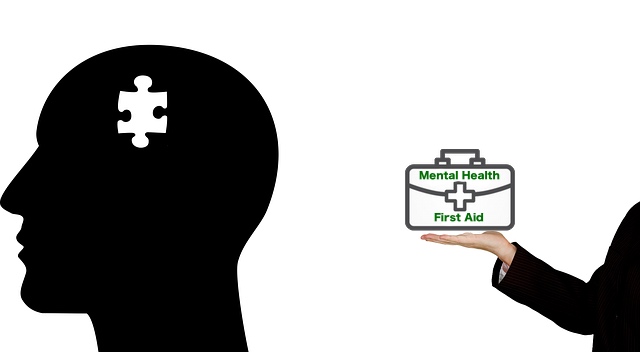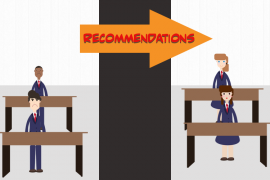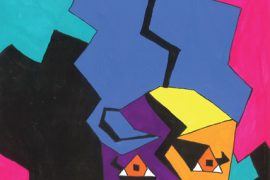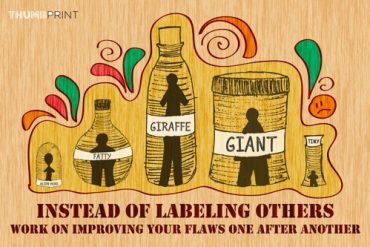The evolution of Mental Health First Aid and how it can help in improving the perspectives on mental health problems and stepping in to help faster.

Most of us will be able to act in a situation where someone experiences a sudden heart attack. Yet, the intriguing question is: would you be able to act if someone had a panic attack instead? Whilst people often know a lot about common physical health problems, lack of awareness on mental health is prevalent. As a medical physician and a certified physical health first aid instructor, I would certainly be able to go through my CAB (Circulation, Airway, Breathing) mnemonic and support the individual until the appropriate professional help arrives. However, my training does not address helping those with mental health problems.
I have recently discovered mental health first aid (MHFA) and became a certified aider. This original universal Australian program has been created in 2001 by Betty Kitchener, a nurse specializing in health education, and her husband Anthony Jorm, a mental health literacy professor during a walk with their family dog. Betty having battled with depression for long has attempted suicide at age 15 but received no comfort from her parents nor professional help. This program has now spread to more than 24 countries around the globe and counting.
Youth MHFA is a 14-hour course that can be delivered as a 2-day training package or as 4 separate modules. It follows the same structure as the standard MHFA geared towards adults, yet the sections are tailored towards topics that affect a higher number of young individuals. You will not end up becoming a therapist, but certainly, a certified mental health first aider with an accreditation valid for three years after passing an online assessment. It covers the most common mental health problems in youth such as depression, anxiety, psychosis, substance abuse problems as well as eating disorders. Strategies to deal with crisis situations such as deliberate self-harm, panic attacks, and aggressive behavior are also covered. Many young individuals around the world are now being trained in interactive classrooms throughout MHFA to assist a peer in distress.
This evidence-based training equips individuals with the necessary skills to identify, understand, respond, and provide initial help and support to someone who may be developing a mental health problem or experiencing a crisis. According to research, participants who complete the course end up having:
- Greater confidence in providing help to an individual in distress as participants grow their knowledge of signs, symptoms, risk factors and appropriate first aid strategies associated with mental health.
- Can link distressed individuals with multiple self-help and professional resources.
- Improve compliance with treatment.
- Reduce their negative attitudes and stigma towards mental health problems.
What I have loved the most is the ‘ALGEE’ action plan that I can now implement in a crisis situation that could involve a suspected suicidal behavior, panic attack, overdose, or a stress reaction to a trauma. ‘ALGEE’ is a 5-step strategy that can be easily remembered and applied. It is as following:
- Approach, assess and assist with any crisis
- Listen non-judgmentally
- Give support and information (i.e. website link, brochure)
- Encourage appropriate professional help
- Encourage other support
My two-day training has introduced me to intriguing individuals with various backgrounds yet a shared passion towards mental health. We went through various scenarios, case studies, personal experiences while correcting misconceptions. What I loved most, however, is when one of my colleagues during our simulation of auditory hallucinations kept whispering in my ear as I was asked to converse with another. Talk about experiencing an auditory hallucination. I wanted to shout “STOP!” as I couldn’t concentrate.
Applying ‘ALGEE’ came quite handy with my friend ‘D’ who is an eighteen-year-old first-year university student. She has been on a downward swing after starting as a diligent student at the university. ‘D’ had been arriving late to her classes and seemed very tired, anxious and disheveled, struggling to make eye contact. I started the conversation highlighting my concerns about the drop in her performance and asked her about the cause. ‘D’ struggled with her tears and whispered that everything is very difficult now. After I gently inquired about what seems to be bothering her, she went onto explaining how difficult it is to remember and to concentrate on her lectures. She said she often feels homesick, isolated, unloved, and worried a lot about her financial status. ‘D’ said she lost interest in everything, cries all the time, and spends most of her day in her room. She finally broke down and said she “cannot go on like this anymore, what’s the point?!” Thanks to my MHFA I have assessed her risk for suicide, listened non-judgmentally, gave her reassurance as well as guided her towards appropriate professional help and other support strategies.
With rising statistics of youngsters facing academic pressure, social media’s psychology of popularity, bullying, coupled with low rates of seeking help, it is time for us to step up and build a bridge between the professionals and the young community. Instead of treating depression as not a “real” medical disorder and opting only for “social support”, use of vitamins or certain forms of connectivity, it is time for us to create a future where mental health is treated as a normal part of life.
My only concern is that the MHFA course should be continuously updated with information and interventions as neuroscientific evidence of mental health emerges. A public-private partnership should also exist linking practice with research to continuously identify and update the number of individuals benefiting as a result of increased mental health literacy and help-seeking attitudes.
MHFA is now available in the United Arab Emirates since December 2017. To date, the Lighthouse Center for Wellbeing is the only accredited provider of MHFA in the UAE. I urge you all to consider taking part.



